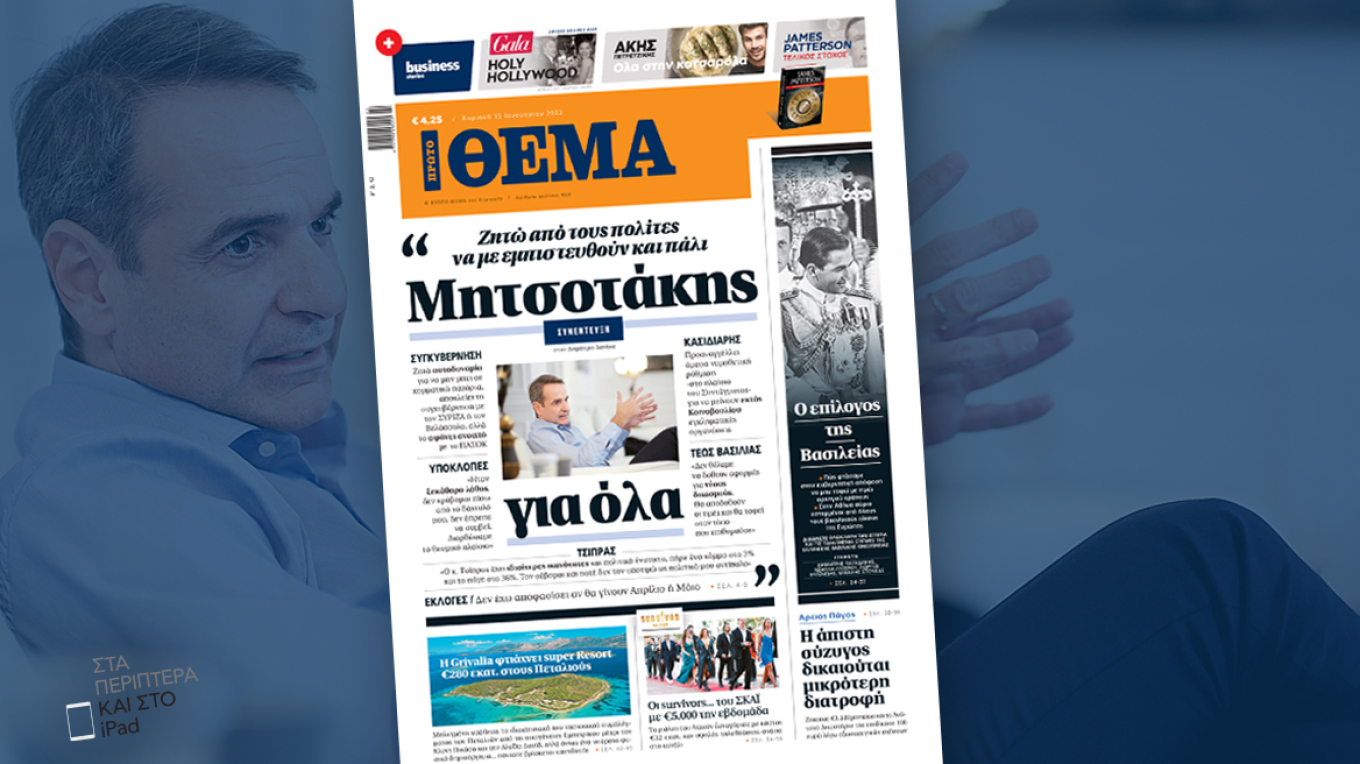Kyriakos Mitsotakis is calling for Greek voters to renew their trust in his government, launching the pre-election campaign in view of the national elections which, as he says, can be held at any time in April or May.
Speaking to “THEMA”, the prime minister notes that he is a progressive centre-right politician who transformed his party – “I don’t think it looks a lot like ND of the past decades,”, he says – while at the same time clarifying that his goal is an absolute majority in the parliament. He adds, however, that “if the citizens, with their votes, direct us towards a coalition government, we will respect their will”.
At the same time, he categorically excludes any possibility of cooperation with both SYRIZA and the Hellenic Solution of Kyriakos Velopoulos, however, he opens a window to PASOK in the event the elections got to a second round.
Mitsotakis announced that an initiative will soon be taken to deal with the extreme-right party of imprisoned Kassidiaris, stressing that “the political system must exhaust the constitutional margins so that criminal organizations are not represented in Parliament”.
Emphasising that New Democracy (ND) followed a government policy that can be confined to ideological barriers, a policy that aims to unite and not divide, the prime minister also answers why the former King Constantine is not buried with the honours of a head of state, pointing out that “he wants to avoid giving cause for new divisions” while adding that the government is in communication with his family so that “due honours” are paid.
In fact, in a response to the personal attacks he receives from members of the official opposition, PM Mitsotakis recognises an “impressive political instinct” in Alexis Tsipras, while declaring that there are remarkable people in SYRIZA, whom – in a display of humour – refuses to name so as not to… burn them in the elections!
When asked about the government’s mistakes, the prime minister returns to the phone tapping of the issue of Nikos Androulakis, speaking of a “clear mistake” that should not have happened. He repeats, however, that he himself did not know the slightest about the matter. “Along the way, a systemic weakness emerged, a monitoring framework that escaped its original purpose, people assumed their responsibilities and stepped down from their positions”, he notes, while for cases like those of Patsis and Heimaras (two ND MPs embroiled in financial scandals), he states that these are “unpleasant exceptions to the rule,” adding that what emerges is the need to have checks and balances and strict deterrent punishments.
The prime minister announces that a major challenge of the next government’s four years will be the salary of civil servants, doctors and teachers. “We ask a lot from our professors and teachers and give little,” he says.
Mitsotakis states that he seeks a different point of view, diversity – and in this context, he says that the next government must include many more women than the current one “which is slowly closing its circle”.
Ask me anything
Explore related questions





